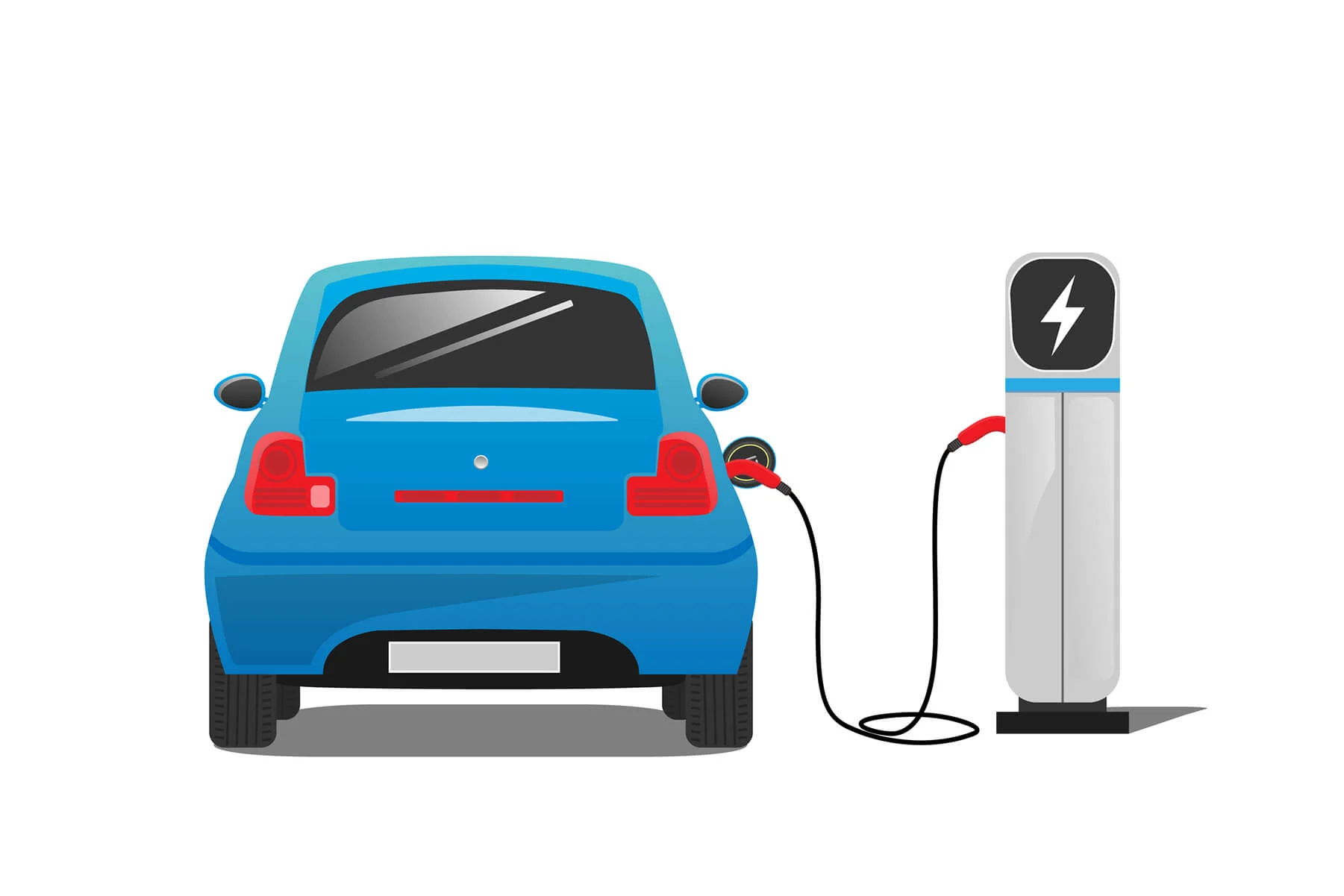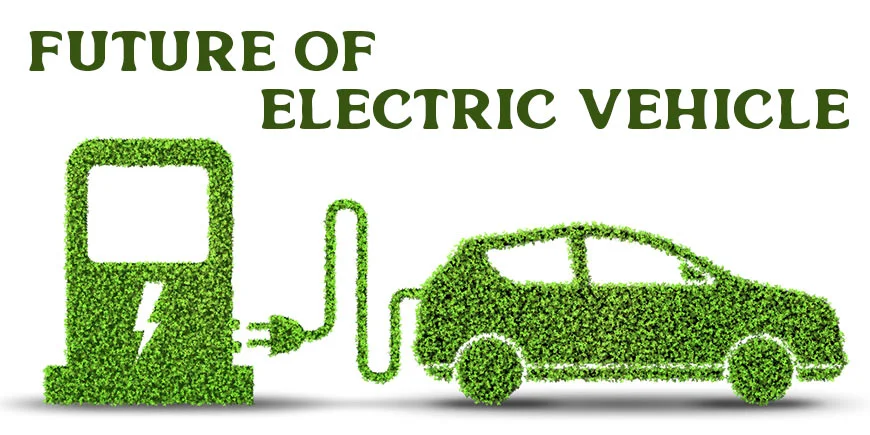Imagine driving a car that’s quiet, eco-friendly, and saves your money. That’s the promise of electric vehicles (EVs). With advancements in technology and growing support from governments, EVs are no longer just a trend—they’re the future of transportation.
In this blog, we’ll explore why switching to electric vehicles is a smart move. Plus, we’ll look at cost savings and environmental benefits. Also, we’ll cover common concerns like charging and range anxiety. So, let’s dive in!

Table of Content:
Introduction to Electric Vehicles (EVs)
Picture yourself cruising down the road in a silent, smooth ride—no noisy engines, no fumes. Welcome to the world of electric vehicles (EVs), where innovation and sustainability come together. More people are switching to EVs, and it’s not just a trend. Instead, it’s the future of transportation.
Plus, with better technology and more charging stations, now is the best time to go electric. Not only do EVs save you money, but they also help the environment. Compared to gas-powered cars, they offer big advantages. So, let’s dive into why making the switch makes sense!
Benefits of EVs Over Traditional Gas-Powered Cars
Switching to an electric vehicle comes with many great benefits. Not only do EVs save money, but they also help the environment. Plus, with better technology and more charging stations, they are more convenient than ever. Here are the top reasons why now is the perfect time to make the switch!
1. Save Money on Fuel
One of the biggest advantages of EVs is lower fuel costs. Electricity is cheaper than gasoline, so charging your EV costs less than filling up a gas tank. For example, in India, charging an EV during off-peak hours can cost as little as ₹4.5 per unit. Over time, these savings add up, especially if you drive a lot.
2. Lower Maintenance Costs
EVs have fewer moving parts than gas-powered cars. This means less wear and tear, and fewer trips to the mechanic. No oil changes, no exhaust repairs—just simple, cost-effective maintenance. Businesses can save 30-40% on maintenance by switching to EVs.
3. Tax Incentives and Rebates
Many governments offer incentives to encourage people to buy Electric vehicles. These can include tax credits, rebates, and grants. For example, in India, the FAME III scheme provides subsidies for EV purchases. Some states also offer extra incentives, like reduced road taxes and registration fees.
4. Environmental Benefits
Renewable energy is playing a big role in making EVs even greener. Many automakers are now using solar, wind, and other clean energy sources in vehicle production. This reduces the carbon footprint of EV manufacturing, making them a truly sustainable choice.
5. Better Performance
EVs are fun to drive! They offer instant torque, which means quick acceleration and a smooth ride. Plus, they’re much quieter than gas-powered cars, making for a more peaceful driving experience.
6. Long-Term Savings
While EVs may cost more upfront, they save you money in the long run. Lower fuel and maintenance costs, combined with tax incentives, mean a higher return on investment over time.
Environmental Benefits of EVs
Electric vehicles are changing how we travel. They are cleaner and greener than gas-powered cars. Driving an EV helps reduce pollution, save natural resources, and make the planet healthier. Let’s look at the biggest environmental benefits of EVs.
1. No Harmful Exhaust
Gasoline and diesel cars release dirty gases like carbon dioxide (CO₂). These gases trap heat and make the planet warmer. EVs don’t have exhaust pipes, so they don’t release any pollution while driving.
Even though power plants create some pollution, Electric vehicles still have a smaller carbon footprint than gas cars. Plus, as we use more solar and wind energy, EVs will become even better for the planet.
2. Cleaner Air
Gas cars pollute the air with toxic chemicals. These chemicals cause breathing problems, heart disease, and other health issues.
Since EVs don’t burn fuel, they help reduce air pollution. This means fresher air and healthier cities for everyone.
3. Less Noise
Gas cars have loud engines, which make cities noisy. EVs are very quiet, even when driving fast.
This helps create calmer streets and less stress for people and animals. With more EVs, our cities will be more peaceful.
4. Saves Natural Resources
Gas cars need fuel, which comes from oil. Getting oil requires drilling, which harms the land and water.
EVs don’t use gas or diesel. While electricity still comes from some fossil fuels, we are using more renewable energy every year. This makes EVs a better choice for the future.
5. Uses Less Energy
EVs are much more efficient than gas cars. A regular car uses only 20% of its fuel for movement, but an EV uses 60-90% of its electricity to drive.
EVs also use regenerative braking, which recycles energy instead of wasting it. This makes them even smarter and more energy-saving.
6. Cleaner Water
Oil spills and fuel leaks pollute rivers, lakes, and oceans. Gas cars also need oil changes and coolants, which can harm water life.
EVs don’t need oil or fuel processing, so they help keep water clean and protect the environment.
7. Helps Wildlife
Mining and drilling for oil destroy forests and wildlife homes. Many animals lose their habitats because of fossil fuel extraction.
Since EVs don’t need gas, they help protect forests, animals, and nature.
8. Better Battery Recycling
EV batteries contain special metals that need mining. But companies are finding new ways to recycle them. This will reduce waste and pollution.
Scientists are also working on better batteries that use safer and more common materials. This will make EVs even greener in the future.
Cost-saving benefits of Electric Vehicles
Electric vehicles (EVs) are not just good for the environment—they save you money too! Here’s how:

- Lower Fuel Costs: Charging an EV costs much less than buying gas or diesel. Electricity is cheaper and more stable in price than fuel.
- Less Maintenance: EVs have fewer moving parts than gas cars. No oil changes, no engine repairs, and less wear and tear mean lower maintenance costs.
- Government Incentives: Many governments offer discounts, tax credits, or free charging to EV owners. These reduce the upfront cost of buying an EV.
- Longer Lifespan: EV motors last longer than gas engines. Batteries are also improving, meaning fewer replacements over time.
- Cheaper Charging at Home: You can charge at home overnight, avoiding high fuel prices. Solar panels can reduce costs even more!
Government Incentives and Tax Breaks
Governments encourage EV ownership with tax breaks and rebates. These incentives can lower the cost of buying an EV, saving you money upfront.
Some states offer extra benefits like grants or reduced registration fees. This makes switching to an EV even more affordable.
Many areas also invest in charging stations, providing free or discounted charging. This helps lower long-term costs for EV owners.
As EV technology improves, new incentives may appear. Staying updated on these programs can help you save more while supporting clean energy.
Addressing Common Concerns about EVs

Many people worry about range anxiety and charging issues when switching to an electric vehicles (EV). But EV technology is improving fast!
Range is increasing, with many EVs now going 300+ km on a single charge. Charging is also easier, as stations are growing everywhere—in cities, highways, and even homes.
Charging takes time, but fast chargers can power up an EV in minutes. Plus, most people charge overnight at home, just like a phone.
With better batteries, more chargers, and longer ranges, driving an EV is easier than ever!
The Future of EVs and their Impact on the Automotive Industry
The future of electric vehicles looks bright as technology keeps improving. With more carmakers going electric and governments supporting clean energy, EVs are set to change the auto industry. Let’s explore how this shift is shaping the future of transportation.

- More EVs on the Road: Car companies are making more EVs as demand grows.
- Better Battery Technology: Batteries last longer and charge faster, making EVs more reliable.
- Lower Costs: Prices are dropping, making EVs more affordable for everyone.
- More Charging Stations: Governments and businesses are building more charging points.
- Cleaner Environment: EVs reduce pollution, helping fight climate change.
- New Jobs & Innovation: The shift to EVs creates jobs in battery production, software, and car design.
- Big Brands Going Electric: Companies like Tesla, Ford, and BMW are investing in EVs.
Conclusion
Switching to an electric vehicles (EV) is more than a trend—it’s a smart choice for your wallet, the planet, and future generations. EVs save money with lower fuel and maintenance costs. Government incentives like tax credits make them even more affordable. Worried about charging? Charging stations are growing fast, making it easier to power up anywhere. Plus, EV technology is improving, offering better range and performance. The future is clean, efficient, and electric. Making the switch now means embracing a greener, smarter way to drive!
